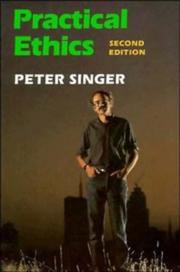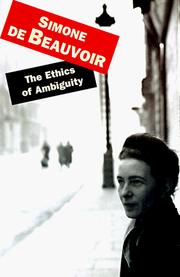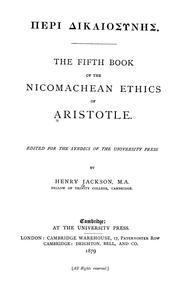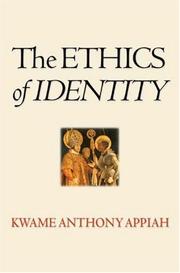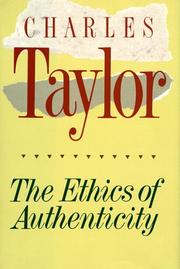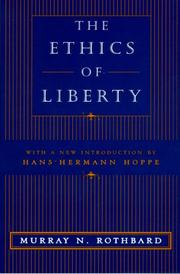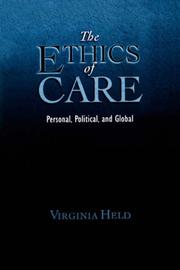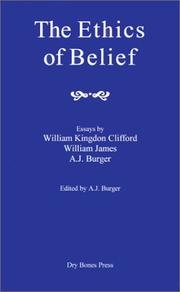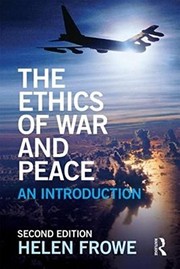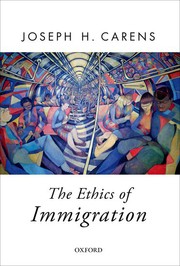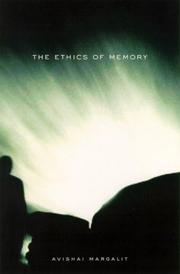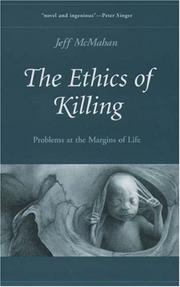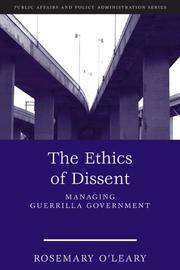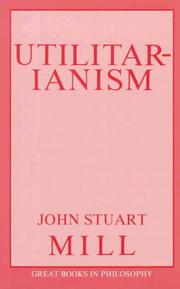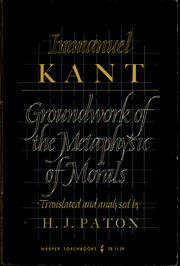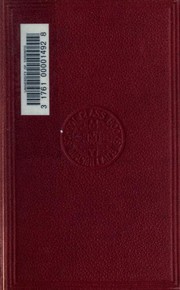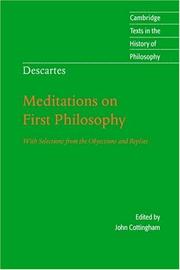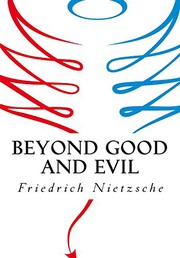Are you on the hunt for the next thought-provoking book on ethics to add to your reading list? Look no further! We’ve compiled a list of the 20 best ethics books that will challenge your moral compass and stimulate your intellect. Whether you’re a philosophy enthusiast or simply interested in exploring ethical dilemmas, these books offer a diverse range of perspectives and insights that will leave you pondering long after you’ve turned the final page. Get ready to delve into the captivating world of ethical discourse with these must-read titles.
Contents
- 1 20 Best Books About Ethics
- 2 The Righteous Mind: Why Good People Are Divided by Politics and Religion
- 3 Practical Ethics
- 4 The Ethics of Ambiguity
- 5 The Nicomachean Ethics
- 6 The Ethics of Identity
- 7 The Ethics of Authenticity
- 8 The Ethics of Liberty
- 9 The Ethics of Care: Personal, Political, and Global
- 10 The Ethics of Belief
- 11 The Ethics of War and Peace: An Introduction
- 12 The Ethics of Immigration
- 13 The Ethics of Memory
- 14 The Ethics of Killing: Problems at the Margins of Life
- 15 The Ethics of Dissent: Managing Guerrilla Government
- 16 Utilitarianism
- 17 Groundwork of the Metaphysics of Morals
- 18 Leviathan
- 19 The Republic
- 20 Meditations on First Philosophy
- 21 Beyond Good and Evil
- 22 Conclusion
- 23
- 24 20 Ancient Greece Fiction Best Books to Read – The 2024 Edition
- 25 Books on Equity: Discover the Top 20 in our 2024 Updated List
- 26 Best Books About Criminology. 2024 Edition
20 Best Books About Ethics
The Righteous Mind: Why Good People Are Divided by Politics and Religion
by Jonathan Haidt
The Righteous Mind, by Jonathan Haidt, delves into the complex world of human morality and the psychology behind our deeply held beliefs. This thought-provoking book about ethics explores why good people often find themselves at odds over politics and religion. Haidt argues that our moral judgments are not solely based on rationality, but are deeply rooted in intuition, emotion, and social connections. By examining the psychological underpinnings of morality, Haidt sheds light on the origins of our moral divides and offers insights into bridging those gaps. Through engaging storytelling and compelling research, The Righteous Mind challenges readers to reconsider their own moral convictions and gain a deeper understanding of the diverse perspectives that shape our society. It is a must-read for anyone seeking to unravel the complexities of human morality and the forces that drive our moral decisions.
Practical Ethics
by Peter Singer
Practical Ethics by Peter Singer is a thought-provoking book on ethics that challenges readers to examine their moral beliefs and consider the consequences of their actions. Singer delves into a wide range of ethical issues, from animal rights and euthanasia to global poverty and environmental sustainability. Through clear and accessible writing, he presents compelling arguments that encourage readers to critically evaluate their ethical stances and consider the impact of their choices on the world around them. This book about ethics is a must-read for anyone interested in ethical philosophy and the complexities of moral decision-making. Singer’s practical approach to ethical dilemmas makes this ethics book a valuable resource for anyone seeking to engage with the complexities of moral reasoning and ethical decision-making.
The Ethics of Ambiguity
by Simone de Beauvoir
The Ethics of Ambiguity by Simone de Beauvoir is a thought-provoking book about the moral and existential dilemmas that individuals face in a world filled with uncertainty and ambiguity. In this influential ethics book, de Beauvoir explores the concept of freedom and the responsibility that comes with it, delving into the complexities of human existence and the choices we make. She argues that individuals must embrace their inherent ambiguity and take ownership of their actions, rather than relying on external moral systems or authorities. Through her powerful and insightful writing, de Beauvoir challenges readers to confront the ethical implications of their decisions and the impact of their choices on themselves and others. The Ethics of Ambiguity is a compelling and philosophical exploration of human morality and the pursuit of authenticity in a complex and uncertain world.
The Nicomachean Ethics
by Aristotle
The Nicomachean Ethics is a classic book on ethics written by the ancient Greek philosopher Aristotle. This influential work delves into the nature of morality, virtue, and the good life. In it, Aristotle explores the concept of eudaimonia, or human flourishing, and discusses the role of virtues such as courage, temperance, and wisdom in achieving this state. The book also delves into the importance of practical wisdom and the role of friendship in living a fulfilling life. Aristotle’s insights into human nature and the pursuit of happiness continue to be relevant today, making this book about ethics a timeless and thought-provoking read.
The Ethics of Identity
by Kwame Anthony Appiah
The Ethics of Identity by Kwame Anthony Appiah is a thought-provoking book on the moral and philosophical implications of our individual and collective identities. Appiah explores the intricate relationship between identity and morality, challenging readers to rethink traditional notions of right and wrong in the context of diverse cultural and social identities. Through engaging and insightful analysis, the book delves into the complexities of identity politics, cultural diversity, and the ethical responsibilities that come with navigating our interconnected world. Appiah’s compelling arguments and compelling writing style make this book about ethics a must-read for anyone interested in understanding the ethical dimensions of identity and the moral challenges of our modern society.
The Ethics of Authenticity
by Charles Taylor
The Ethics of Authenticity by Charles Taylor is a thought-provoking book about ethics that explores the concept of authenticity in our modern society. Taylor examines the tension between individuality and the pressures of conformity, and how this impacts our moral decisions and sense of self. He argues that in a world where individualism is prized, we must re-evaluate our understanding of what it means to live authentically and ethically. Taylor’s insightful analysis challenges readers to consider the implications of our actions on both a personal and societal level, and to question the values that guide our choices. This book on ethics offers a compelling exploration of the complexities of authenticity, making it a must-read for anyone interested in moral philosophy and the human experience.
The Ethics of Liberty
by Murray N. Rothbard
The Ethics of Liberty is a groundbreaking book on ethics by Murray N. Rothbard, a leading figure in the libertarian movement. In this thought-provoking work, Rothbard presents a radical and compelling argument for a society based on the principles of individual liberty, voluntary cooperation, and non-aggression. He challenges the traditional notions of ethics and morality, advocating for a system of natural rights and self-ownership. Rothbard’s book about ethics is both a philosophical treatise and a practical guide for creating a just and free society. Through a rigorous examination of the principles of ethics, Rothbard offers a compelling vision for a society where individuals are free to pursue their own interests, without infringing on the rights of others. The Ethics of Liberty is a must-read for anyone interested in the ethics of liberty and the foundations of a free society.
The Ethics of Care: Personal, Political, and Global
by Virginia Held
The Ethics of Care: Personal, Political, and Global by Virginia Held is a thought-provoking book on ethics that explores the concept of care as a fundamental moral value. Held argues that traditional ethical theories have largely overlooked the importance of care in human relationships, both on a personal and global scale. She delves into the ethical implications of care in various contexts, including family dynamics, healthcare, and global politics. The book challenges readers to reconsider their understanding of morality and to recognize the significance of care in shaping our ethical decisions. With its insightful analysis and engaging writing style, The Ethics of Care offers a fresh perspective on moral philosophy and the role of care in our interconnected world.
The Ethics of Belief
by William Kingdon Clifford
The Ethics of Belief by William Kingdon Clifford is a thought-provoking book on ethics that challenges readers to critically examine their beliefs and the evidence behind them. Clifford argues that it is morally wrong to hold beliefs without sufficient evidence, as it can lead to harmful consequences. Through compelling reasoning and persuasive arguments, he emphasizes the importance of intellectual integrity and the ethical responsibility of individuals to question and scrutinize their beliefs. This book about ethics encourages readers to reflect on the ethical implications of their beliefs and the impact they have on themselves and others. With its engaging prose and profound insights, The Ethics of Belief is a timeless ethics book that continues to inspire meaningful discussions about the intersection of belief, evidence, and morality.
The Ethics of War and Peace: An Introduction
by Helen Frowe
The Ethics of War and Peace: An Introduction by Helen Frowe is an insightful and thought-provoking book about the moral principles that govern warfare and conflict. Frowe explores the complex and often controversial ethical issues surrounding war, such as the justifiability of military intervention, the treatment of non-combatants, and the limits of permissible violence. Drawing on both historical and contemporary examples, she offers a compelling analysis of the ethical considerations that arise in times of war and peace. This book on ethics challenges readers to critically examine their own beliefs and assumptions about the morality of warfare, making it an essential read for anyone interested in the intersection of philosophy, politics, and international relations.
The Ethics of Immigration
by Joseph Carens
The Ethics of Immigration by Joseph Carens is a thought-provoking book on the moral considerations surrounding immigration. Carens explores the complex ethical issues that arise when it comes to the movement of people across borders, challenging readers to reevaluate their understanding of justice, equality, and human rights in the context of migration. With clear and compelling arguments, the book delves into topics such as the rights of non-citizens, the duties of affluent nations towards newcomers, and the concept of open borders. Carens’ insightful analysis and compassionate approach make this book about ethics a must-read for anyone interested in the intersection of politics, philosophy, and human rights.
The Ethics of Memory
by Avishai Margalit
The Ethics of Memory by Avishai Margalit is a thought-provoking exploration of the moral implications of memory. In this compelling book about ethics, Margalit delves into the complex relationship between memory and ethics, addressing questions such as the responsibility of remembering, the ethics of forgetting, and the impact of memory on justice and reconciliation. Through engaging and insightful analysis, Margalit challenges readers to consider the ethical dimensions of collective and individual memory, and the ways in which our memories shape our understanding of the past and present. This ethics book offers a fresh perspective on the role of memory in shaping our moral consciousness, making it a must-read for anyone interested in the intersection of memory and ethics.
The Ethics of Killing: Problems at the Margins of Life
by Jeff McMahan
The Ethics of Killing: Problems at the Margins of Life is a thought-provoking book on ethics, written by Jeff McMahan. This compelling book about ethics delves into the moral complexities surrounding killing, particularly at the boundaries of life. McMahan explores a wide range of controversial topics, such as abortion, euthanasia, and the killing of non-human animals, offering a nuanced and rigorous analysis of these ethical dilemmas. Drawing on philosophical reasoning and real-life examples, the book challenges readers to critically examine their own beliefs and attitudes towards killing. With its compelling arguments and in-depth exploration, The Ethics of Killing is a must-read for anyone interested in grappling with the complex moral questions that arise at the margins of life.
The Ethics of Dissent: Managing Guerrilla Government
by Rosemary O’Leary
The Ethics of Dissent: Managing Guerrilla Government by Rosemary O’Leary is a thought-provoking book about the ethical challenges faced by public servants who engage in dissent within government organizations. O’Leary explores the concept of ‘guerrilla government’, where employees use unconventional methods to challenge the status quo and effect change. Through case studies and in-depth analysis, the book delves into the moral dilemmas and ethical considerations of dissent within bureaucratic systems. It provides a compelling examination of the tension between loyalty to the organization and the responsibility to speak out against wrongdoing. This ethics book offers valuable insights into the complexities of navigating dissent in the public sector, making it essential reading for anyone interested in organizational ethics and governance.
Utilitarianism
by John Stuart Mill
Utilitarianism is a groundbreaking book on ethics by John Stuart Mill that explores the concept of maximizing happiness and minimizing suffering as the basis for moral decision-making. Mill argues that actions should be judged by their ability to promote the greatest good for the greatest number of people, emphasizing the importance of individual happiness and well-being. Through thought-provoking and compelling arguments, Mill challenges traditional ethical theories and offers a new perspective on the moral value of actions. This influential ethics book continues to stimulate debate and inspire readers to critically examine their own beliefs and values, making it a must-read for anyone interested in moral philosophy and the complexities of human behavior.
Groundwork of the Metaphysics of Morals
by Immanuel Kant
Groundwork of the Metaphysics of Morals is a foundational book on ethics written by Immanuel Kant. In this seminal work, Kant explores the principles of morality and the nature of moral duty. He emphasizes the importance of moral autonomy and rationality in making ethical decisions, arguing that the moral worth of an action is determined by the intention behind it, rather than the consequences. Kant’s ideas have had a profound impact on the field of ethics and continue to be influential today. This thought-provoking book about ethics challenges readers to consider the fundamental principles that guide our moral judgments and actions, making it essential reading for anyone interested in philosophy or moral theory.
Leviathan
by Thomas Hobbes
Leviathan by Thomas Hobbes is a classic book on political philosophy and the social contract theory. Published in 1651, it explores the nature of society and government, and the need for a strong central authority to maintain order and prevent the state of nature, which Hobbes describes as a war of all against all. The book discusses the role of the sovereign and the rights and obligations of individuals, emphasizing the importance of social contracts in creating a stable and just society. While often controversial, Leviathan remains a thought-provoking and influential work that continues to spark debates about the nature of government and human nature. It’s a must-read for anyone interested in political theory and the complexities of governance.
The Republic
by Plato
The Republic, written by the ancient Greek philosopher Plato, is a seminal book on ethics that delves into the nature of justice, morality, and the ideal state. The dialogue follows Socrates as he engages in philosophical discussions with various interlocutors, exploring the concept of justice and the characteristics of a just society. Plato’s allegory of the cave and the famous theory of the forms are also prominent features of this thought-provoking work. Through engaging dialogues and thought experiments, Plato challenges readers to question their understanding of morality, politics, and the pursuit of the good life. The Republic remains a timeless book about ethics that continues to inspire philosophical debates and ethical inquiries to this day.
Meditations on First Philosophy
by René Descartes
Mediations on First Philosophy by René Descartes is a thought-provoking book on ethics that delves into the nature of reality, knowledge, and existence. Descartes, a prominent philosopher of the 17th century, presents his famous method of doubt, where he systematically questions everything he knows in order to arrive at irrefutable truths. Through a series of meditations, he explores the existence of God, the nature of the mind and body, and the concept of free will. Descartes’ compelling arguments and logical reasoning have made this book about ethics a timeless classic in the field of philosophy. It challenges readers to critically examine their beliefs and perceptions, making it an essential read for anyone interested in delving into the depths of human thought and existence.
Beyond Good and Evil
by Friedrich Nietzsche
Beyond Good and Evil is a thought-provoking book on ethics written by Friedrich Nietzsche. In this philosophical masterpiece, Nietzsche challenges traditional ideas of morality and questions the nature of good and evil. He explores the concept of power and the will to power, asserting that individuals should strive to overcome societal norms and embrace their own unique values. Through a series of aphorisms and essays, Nietzsche delves into the complexities of human nature, criticizing the conventional notions of morality and advocating for a reevaluation of established ethical principles. This book about ethics encourages readers to critically examine their beliefs and consider the possibility of transcending conventional notions of right and wrong. Beyond Good and Evil is a timeless and influential ethics book that continues to challenge and inspire readers with its radical ideas about morality and human behavior.
Conclusion
Exploring the complex and thought-provoking world of Ethics through literature is a truly enlightening experience. The 20 best books about ethics listed in this article offer a diverse and compelling range of perspectives on moral philosophy, ethical dilemmas, and the human condition. Whether you’re a seasoned philosopher or simply curious about the ethical dimensions of our lives, these books are essential reading. Dive into these insightful works to expand your understanding of ethics and the moral fabric of our world.
Which Ethics book is best?
The best book on Ethics can vary with personal preference, but three widely recommended titles are:
- The Righteous Mind: Why Good People Are Divided by Politics and Religion by Jonathan Haidt,
- Practical Ethics by Peter Singer,
- The Ethics of Ambiguity by Simone de Beauvoir.
Each offers valuable insights and could be a great starting point.
What are the best books to learn about Ethics?
For those looking to learn about Ethics, there is a wealth of literature that can provide a comprehensive understanding of the subject. Some of the most highly recommended books include:
- The Righteous Mind: Why Good People Are Divided by Politics and Religion by Jonathan Haidt,
- Practical Ethics by Peter Singer,
- The Ethics of Ambiguity by Simone de Beauvoir,
- The Nicomachean Ethics by Aristotle,
- The Ethics of Identity by Kwame Anthony Appiah,
- The Ethics of Authenticity by Charles Taylor,
- The Ethics of Liberty by Murray N. Rothbard,
- The Ethics of Care: Personal, Political, and Global by Virginia Held,
- The Ethics of Belief by William Kingdon Clifford,
- The Ethics of War and Peace: An Introduction by Helen Frowe
These books offer a range of perspectives on Ethics, covering various aspects and approaches to the subject.
What are the best books on Ethics?
The best books on Ethics include:
- The Righteous Mind: Why Good People Are Divided by Politics and Religion by Jonathan Haidt,
- Practical Ethics by Peter Singer,
- The Ethics of Immigration by Joseph Carens,
- The Ethics of Memory by Avishai Margalit,
- The Ethics of Care: Personal, Political, and Global by Virginia Held,
- The Ethics of Authenticity by Charles Taylor.
Each offers unique insights into the subject. While these books on the topic of Ethics are highly regarded, it’s important to note that any list of ‘best’ books is subjective and reflects a range of opinions.
What are the best Ethics books of all time?
Choosing the best Ethics books of all time can vary depending on who you ask, but seven titles that are often celebrated include
- The Righteous Mind: Why Good People Are Divided by Politics and Religion by Jonathan Haidt,
- Practical Ethics by Peter Singer,
- The Ethics of Identity by Kwame Anthony Appiah,
- The Ethics of Care: Personal, Political, and Global by Virginia Held,
- The Ethics of War and Peace: An Introduction by Helen Frowe,
- The Ethics of Memory by Avishai Margalit,
- and The Ethics of Immigration by Joseph Carens.
Each of these books has made a significant impact in the field of Ethics and continues to be influential today.


